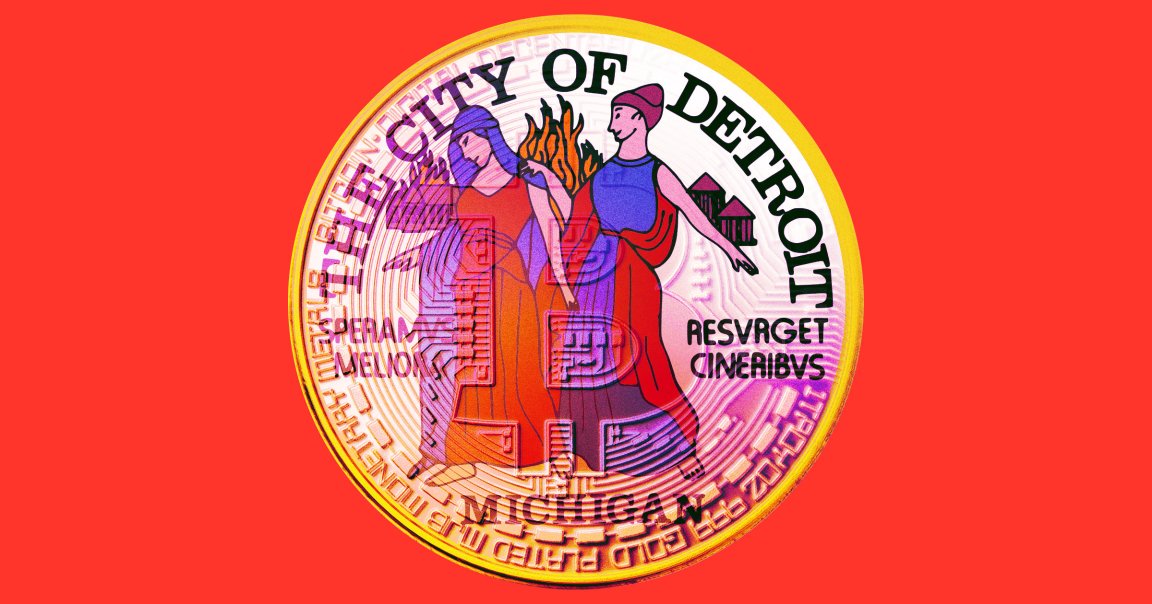
Detroit is a city that’s used to fighting. Once the third most populous city in the country, its citizens have long struggled against robber barons, anti-communist witch hunts, private sector looting, and racist housing laws. It hasn’t had it easy, to say the least.
Now, Outlier reports, the city is doing battle against a $93 million crypto real estate scheme.
The city recently announced a massive lawsuit filed against RealToken, a cryptocurrency business that’s snapping up hundreds of subsidized housing units to “tokenize” on the blockchain.
Once purchased by RealToken, the property is sold to international crypto speculators in tiny increments, a scheme known as “fractional ownership.” A tenant’s rent is then split among the property’s investors based on how many tokens they own of a given unit.
The exploitative scheme was first uncovered by Outlier, which reported that RealToken properties are plagued by squalid conditions, unresponsive property managers, and arbitrary evictions. Operating through 165 shell companies, the crypto firm reportedly owes the city more than $3 million in unpaid fines and commercial property taxes.
Detroit announced the lawsuit after a five-month joint investigation spanning three municipal agencies.
“This is the largest nuisance abatement case in our history,” said Conrad Mallett, counselor for the City of Detroit. “These defendants have profited from our communities while ignoring their most basic legal obligations as landlords and property owners. Our neighborhoods are not investment portfolios — they are homes for Detroit residents.”
Though RealToken claims it has no direct interaction with the properties it gobbles up on the blockchain — and therefore had no idea about the state of its properties — Motown isn’t hearing it.
“Any claims that RealToken was unaware of the condition of the subject property is simply specious,” the city’s court filing reads. “The City of Detroit has sent numerous correction orders, emergency correction orders, blight violations and fair warning letters directly to Real Token, which have gone largely unheaded.”
“Furthermore,” the city continues, “RealToken refused to authorize payment for ‘even the most basic repairs’ with its former property maintenance company, thereby maximizing profits over health, safety, and welfare of Detroit residents.”
The city’s suit covers over 400 RealToken properties, according to Outlier, none of which are in compliance with city code. Detroit alleges that the company is responsible for systemic code violations, evading responsibility for property upkeep through a “complex web of LLCs and shell companies,” and posing a danger to public health and safety.
It’s a major lawsuit for low-income Detroiters who’ve become embroiled in the crypto scheme, and a major test for the swelling blockchain real estate industry more broadly.
Similar blockchain schemes include companies like Foreclosure Token, which “aims to provide a secure and transparent platform for investors to participate in the distressed real estate market” by offering clients tokenized shares “in foreclosure properties and tax liens.”
Detroit’s press release notes that this is believed to be the “first lawsuit of its kind targeting a blockchain-based property investment platform for nuisance-related violations at scale.”
“This is not innovation,” Detroit councilmember Angela Whitfield Calloway told Outlier. “This is exploitation.”
More on the Blockchain: An Entire Country Switched Over to Bitcoin and It’s Turned Into a Disaster